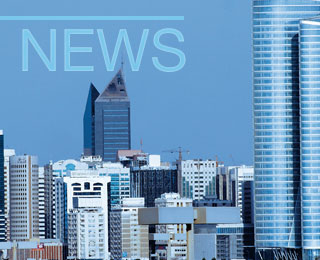Cimpor intends to invest EUR1.4bn in Portugal by 2030, much of it to meet the "number one challenge" of decarbonisation, with infrastructure, technology and new products, the CEO said. The announcement was made by Cevat Mert, CEO of Cimpor Portugal and Cabo Verde, at a meeting with journalists, which marked around six months since he took over the cement company, after it was taken into 100 per cent ownership by Taiwan Cement Corp (TCC) in March.
At this meeting, Mr Mert also said that the company's goal is to enter more markets, in addition to the 14 countries where it is currently present. The cement company's commercial manager, Ignacio Gómez, explained that the change in markets, focussing more on Europe and the USA, was due to the new environmental requirements. "The players in Africa or China aren't investing in this, [...] so they have lower [production] costs. Continuing to export in Africa has become more difficult," he explained, adding that 25-30 per cent of production in Portugal is destined for export.
In October Cimpor announced an investment of EUR360m in decarbonisation and innovation projects by 2026, including EUR180m in its Alhandra Production Centre in Vila Franca de Xira, in the Lisbon district. Cimpor is currently investing around EUR50m of its own funds in a terminal in the port of Bristol, UK, and in France, and will "undoubtedly invest in the US".
Mr Mert said that TCC intends to keep 100 per cent of Cimpor, the brand that is its "gateway to Europe", and also intends to continue to strengthen the workforce, although he acknowledged difficulties in attracting talent.
According to Diogo Felgueiras, the company's financial director in Portugal and Cape Verde, the cement company is responsible for around 2000 direct and indirect jobs.
As for future challenges, Cimpor signalled the need to increase the pace of investment planned by the government and simplify procedures to facilitate project development. "We're making a big investment, and if the government doesn't keep up the same pace, we'll have a problem in the future," said Mr Gómez, giving as examples the problems with the transport of CO2 that is captured and with the licensing of projects.
As for geopolitical instability, Mr Mert said he expects "ups and downs", but doesn't yet see any reason to "raise the red flag".
"Everything is going quite steadily and, as we all know, the future is energy and technology and, as long as this transformation is taking place, there will be construction, and if there is construction, there will be cement," said the CEO.
